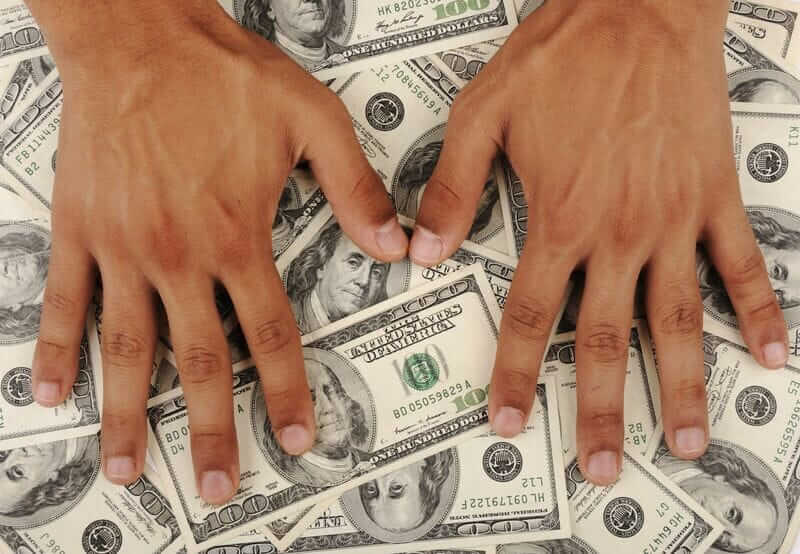
The American economy remains strong, with the S&P 500 ($SPX) enjoying its best month since last October, and the Nasdaq ($NASX) having the best year-to-date in 40 years. And today's June jobs report released by the United States Census Bureau showed an increase of 209,000 non-farm jobs. And the unemployment rate is just 3.6%, which is remarkably low.
However, despite the strong overall state of the economy, wealthy Americans may feel as if they're in a recession.
What is a “richcession?”
A "richcession" is when an economic downturn disproportionately hurts wealthy people. The term was coined by Wall Street Journal reporter Justin Lahart.
It all started with the pandemic and the money provided by the Federal Reserve to large businesses, such as the Payroll Relief Program. This strongly encouraged businesses to not layoff their workers, many of whom are in the lower-income bracket. These people not only kept their jobs, but also received Federal assistance from the Coronavirus Aid, Relief, and Economic Security (CARES) Act of 2020. However, much of this money wasn't put into investments and instead into savings.
Meanwhile, richer Americans, who invest in a variety of asset classes such as the stock market and real estate, saw their net worth increase substantially in 2020 - 2021. The 10 richest Americans doubled their fortunes, according to Oxfam. But fast forward to last year, and those changes started to hit rich Americans.
In fact, Elon Musk even broke a Guinness World Record, for the “largest loss of personal fortune in history.” From November 2021 until January 2023, it was estimated he lost almost $200 billion. And it really all came down to the performance of Tesla (TSLA) stock, with Musk's net work dropping from about $320 billion to $138 billion. While shares have recovered impressively in 2023, they are still down 32.6% from all-time highs set in October 2021. But don't feel too bad for him, currently he's still worth about $248 billion.
But it's been more than just the stock market that's affecting the net worth of rich Americans. The increase in interest rates and inflation created a scenario where business owners are having a hard time keeping up. As a result, we're seeing more layoffs. And businesses' higher-earning workers tend to be the first out the door.
The largest amount of layoffs has been from tech companies and financial companies, such as: Meta (META), Alphabet (GOOG) (GOOGL) and Morgan Stanley (MS).
Inflation continues to remain elevated, which will likely lead to more rate hikes. According to a study by the De Nederlandsche Bank, higher interest rates actually decrease the wealth of rich Americans, rather than non-wealthy Americans. So it looks as though the rich aren't about to get richer, at least for now. The study also found the reverse was true, with lower interest rates leading to a far larger piece of America's economic pie.
Where that leaves non-wealthy Americans
As long as the non-tech job market stays relatively strong, non-wealth Americans look to be okay. Gas prices at the pump are significantly lower than they were a year ago and inflation continues to diminish. This gives non-wealthy Americans the ability to spend and save more.
This has led to analysts and economists to reduce the chances of a major recession. Last month Goldman Sachs released a report entitled “Why a US recession has become less likely,” in which they reduced the chance of recession in the next 12 months to 25% from 35%.0000
That all being said, non-wealthy Americans won't exactly have it easy. The Fed will continue to raise interest rates until that 2% target inflation rate is hit. This will continue to create a rough situation for both consumers and businesses who have or want to take out loans.
A recession, versus a “richcession”
Bottom line, there are some key differences between a recession and a richcession. During a recession, job rates quickly drop. Lower-paying jobs, especially in consumer-heavy areas such as restaurants and retail stores, drop dramatically month after month. This leads to a trickle down affect. First it's not being able to spend on consumer items. Then these businesses go under. Then it leads to more pullbacks on spending, leading to a pullback in the housing sector. That's followed by sales of larger items such as cars, leading to even more layoffs among factory workers.
Meanwhile, during a richcession, which we're currently experiencing, it's the higher-paying, professional jobs concentrated in tech and finance sectors seeing the large0st losses.
The U.S. services sector continues to remain strong. This sector employees 80% of the American private sector workforce, and includes nurses, restaurant workers, construction workers, factory workers, etc.
So while the job loss among highly-paid professional workers is nothing to sneer at, those who make more are usually able to save more. So again, layoffs in these industries, while headline-makers, aren't anything that could predict a recession. It's more putting a spotlight on the inequality that occurred during the pandemic between the rich and poor, and how the economy is normalizing after an abnormal period of time.
On the date of publication, Amy Legate-Wolfe did not have (either directly or indirectly) positions in any of the securities mentioned in this article. All information and data in this article is solely for informational purposes. For more information please view the Barchart Disclosure Policy here.






